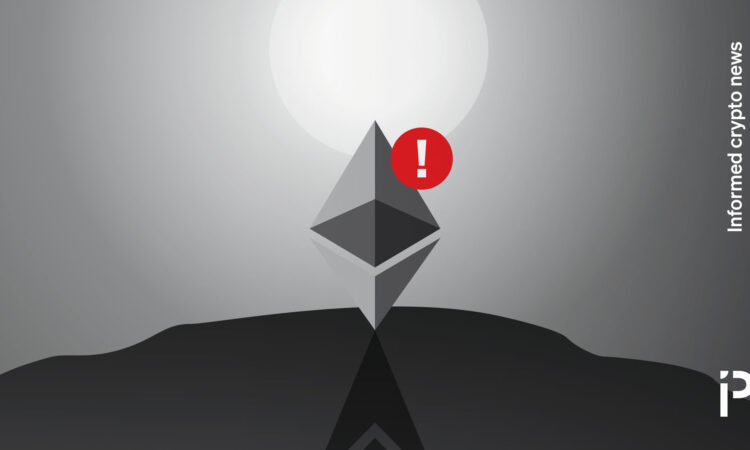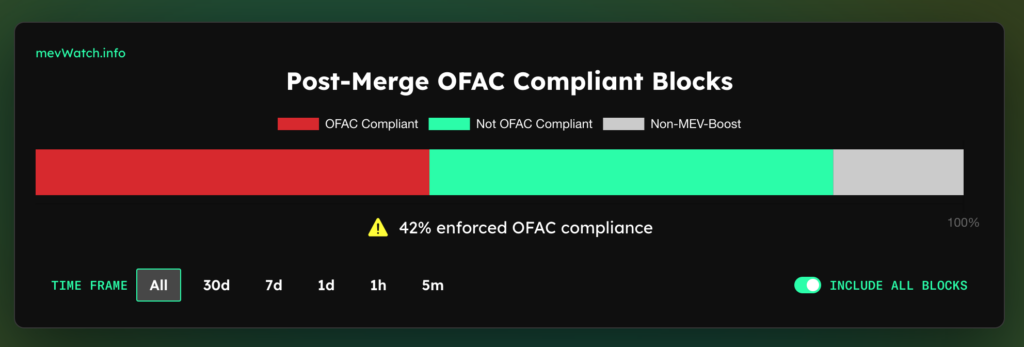
A concerning percentage of Ethereum’s blockchain censors participation according to US sanctions. Data compiled by Labrys and Rated Network suggests that approximately 42% of blocks since Ethereum’s September 15, 2022 Merge from proof-of-work to proof-of-stake have sanctioned the wallets on the Specially Designated Nationals List. Earlier this week, the figure reached nearly 50%.
The Office of Foreign Assets Control (OFAC), an enforcement agency of the US Treasury Department, maintains this list.
Unlike permissionless crypto networks like Bitcoin which allow any user to broadcast any transaction for inclusion in an upcoming block, OFAC-compliant relays on Ethereum censor wallet addresses that appear on US sanctions lists.
The widely popular software Maximum Extractable Value Boost (‘MEV-Boost’) censors these wallets by default and many relays use its default settings. Mev-Boost also outsources validators’ block production to a third-party marketplace operated by itself, maximizing revenue by exploiting everyday Ethereum users via front-running, back-running, sandwiching, and other quantitative trading tactics.

Read more: Here’s how insiders are getting rich off the Ethereum Merge
Some examples of MEV-boost relays include Flashbots — by far the largest — and others like BlockNative, Manifold, Eden, BloXroute Max Profit, BloXroute Ethical, and BloXroute Regulated.
Relay operators who comply with US sanctions censor which users may broadcast transactions into the Ethereum blockchain. Sanctioned users may still try to gain inclusion of their transaction by routing through a non-OFAC-compliant pathway.
Got a tip? Send us an email or ProtonMail. For more informed news, follow us on X, Instagram, Bluesky, and Google News, or subscribe to our YouTube channel.






